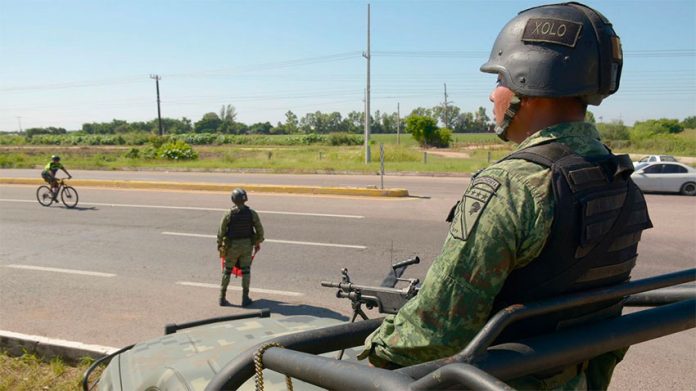President López Obrador criticized a United States official Thursday for offering opinions about Mexico’s security strategy in the wake of the violence that terrorized Culiacán, Sinaloa, last week.
Rich Glenn, deputy assistant secretary of state for international narcotics and law enforcement affairs, said during an appearance in the United States Congress on Wednesday that “the events of last week were very concerning to us.”
The comment, referring to the arrest and subsequent release of suspected drug trafficker Ovidio Guzmán López and the Sinaloa Cartel takeover of Culiacán, is the harshest made by the U.S. government about last Thursday’s events.
Glenn also said the Trump administration does not expect Mexico to make progress in the fight against organized crime unless the highest level of the federal government shows political commitment to do so. He said that Mexico needs a comprehensive strategy to fight transnational organized crime.
Speaking at his regular news conference on Thursday, López Obrador said that “officials of other countries should not offer opinions about internal issues that only concern our government,” adding that it’s “objectionable” to do so.
“Imagine if I were to declare that the United States [security] strategy is bad because they allow, without control, the sale of weapons that are brought into Mexico and cause the death of civilians,” he said.
The president added that Mexico has a “very good” relationship with the United States government.
“One swallow doesn’t make a summer,” López Obrador said, characterizing Glenn as the sole voice in the U.S. government that is critical of Mexico’s security strategy. “President Trump’s opinion has been one of respect towards Mexico.”
The president said on Saturday that he received a telephone call from Trump, who expressed “solidarity” over what happened in Culiacán.
Glenn said that assistant secretary of state Kirsten Madison traveled to Mexico two weeks ago to discuss the need to develop and share a security strategy with clear goals and targets. Mexico and the United States have also struck an agreement to seal the borders against the illegal trafficking of firearms.
Asked by a lawmaker whether the United States should continue to provide security funding to Mexico in light of Guzmán’s release, Glenn said that cooperation had helped Mexican security forces to increase their capacity to tackle organized crime.
“We know they are capable. We know because we helped build that capacity,” he said.
The government’s security strategy is currently under intense scrutiny not only because of the events in Culiacán but also due to the high levels of violence plaguing many other parts of the country. Mexico is on track to record its most violent year in recent history
López Obrador came under fire this week for failing to keep a promise made in April to improve security in six months.
But the president remains committed to the government’s approach of avoiding whenever possible the use of force by armed forces, the National Guard and police, asserting that “you can’t fight fire with fire.”
Source: El Financiero (sp), The Associated Press (sp)
